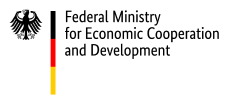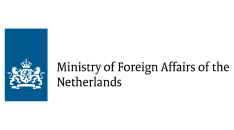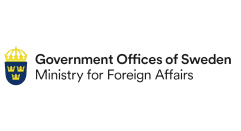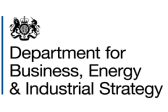Zimbabwe
Member Since
JAN 2017
Partners Involved
Action 24, Africa Enterprise Challenge Fund, ARC International, Business Council for Sustainable Development, Confederation of Zimbabwean Industry, COMESA, CTCN, FAO, France, GCF, GEF, Germany (through GIZ and KfW), ICLD, ICLEI Local Government for Sustainability, IFAD, ILO, Konrad Adenauer Stiftung (KAS), Oxfam, Practical Action, Standards Association of Zimbabwe, SEI, Sweden, the U.K., UNDP, UNEP, UNITAR, UNESCO, UN Women, WFP, the World Bank, WWF, and Zimbabwe Sunshine Group
Zimbabwe like most other African countries is under severe pressure now, more than ever, due to climate change, environmental challenges and the devastating setbacks to sustainable development brought about by the COVID-19 pandemic. Enhanced climate action therefore becomes imperative. Thanks to the support mobilized for Zimbabwe by the NDC Partnership, the country has completed development of the revised NDC which indicates raised emission reduction ambition. Zimbabwe calls upon the NDC Partnership to further mobilize resources for demonstration projects on climate change mitigation”
Washington Zhakata
Director of Climate Change Management Department, Ministry of Environment, Climate, Tourism and Hospitality Industry
In 2019 Zimbabwe launched its NDC Implementation Plan (Partnership Plan) and its Low Emission Development Strategy (LEDS) (2019) to inform the upcoming NDC updating in 2020/2021, long-term development and sectoral plans. The country’s economic blueprint, the National Development Strategy 1 (NDS1 2021-2025) identifies “Environment Protection, Climate Resilience and Natural Resource Management” and “Infrastructure & Utilities – Energy, Water & Transport” among its key priorities, including climate change in the center of government planning and budgeting processes.
Increasing Climate ambition through an inclusive approach
While the first NDC had only two sectors, the LEDS (2019) in addition to energy covered more of IPCC sectors, including IPPU, AFOLU and Waste, resulting into a broadened 2019 NDC Implementation Plan (Partnership Plan). The Plan translates 111 requests across more than 10 government ministries into an objective results-based framework. The Plan was prepared through extensive and inclusive consultations with government, development partners, civil society, private sector, and academia. As a result of this whole-of-society approach, 26 NDC Partnership members are supporting implementation of the government-led plan with the following objectives:
- Strengthen institutional and technical capacities to mainstream and implement NDC priority actions at national and subnational levels through a whole-of-government and whole-of-society approach.
- Improve the institutional framework and enabling environment to catalyze transformative mitigation and adaptation actions.
- Create and strengthen mechanisms and capacities to mobilize and manage climate finance at speed and scale. Strengthen capacities to coordinate, monitor, and report on NDC Implementation.
Programming of resources within the Partnership Plan framework increased from USD72 million in 2019 to USD121 million in 2021 (including planned and ongoing initiatives).
Seeking to enhance its NDC, Zimbabwe engaged in the Climate Action Enhancement Package (CAEP) and UNDP Climate Promise. The revised NDC will integrate new sectors (Agriculture, Forest and Other Land Use; Industrial Products and other Product Use, and Waste) and new gases (CH4, N2O and short-lived climate pollutants). The revised NDC considers the Just Transition principles based on the Green Job Assessment Model that evaluates how green and climate policies affect job creation for women and youth, income distribution, skills development and economic growth. A cost-benefit analysis of proposed mitigation and adaptation measures in the updated NDC and their impacts on the Sustainable Development Goals is being done to align climate actions with the national development trajectory. A UNDP supported NDC in-country facilitator has been assisting the government in mobilizing and coordinating technical and financial resources for implementation of the Partnership Plan and the NDC revision process.

Mainstreaming climate into planning and budgeting processes
The country’s National Development Strategy indicates mitigation, resilience and adaptation as pillars for achieving the national sustainable development agenda. To operationalize this vision, the Partnership is supporting several transformative initiatives. For instance, Konrad Adenauer Stiftung (KAS), UNDP and COMESA are supporting the creation of Zimbabwe’s Climate Change Act based on international best practices. The Act will guide (i) climate change mainstreaming, (ii) institutionalization of MRV processes and mandates, and (iii) facilitate the National Climate Change Fund establishment.
On the Public Financial Management side, the Ministry of Finance and Economic Development’s capacity is enabling climate finance tracking across sectoral budget lines. With World Bank support, Zimbabwe’s Public Investment Management (PIM) processes and procedures are being revised to integrate climate change considerations into the design, selection and evaluation of public investments. The Bank is supporting the identification of low-emission and climate-resilient projects and a resource mobilization action plan for climate and SDG-compatible COVID-19 economic recovery.
The government now mandates all ministries, departments, and agencies embrace climate change actions by ensuring that there is climate change mitigation and adaptation in all their programming. The finance ministry called upon the mainstreaming of climate change in all projects and programs with immediate effect for all future budgets.
Mobilizing climate finance
Responding to the government’s request, Partnership members including UNDP, the World Bank, and COMESA are supporting a framework to channel national climate funds. The Infrastructure Development Bank of Zimbabwe (IDBZ), currently being accredited to the GCF, is one institution setting up a Climate Finance Facility (CFF) under this structure with UNDP and World Bank support. The CFF aims to finance green and sustainable projects including energy, transport and housing.
Four finalized project proposals supporting climate priorities are ready for submission:
- A solar thermal technology project to reduce electricity demand by transferring the water heating load from the grid to solar power resulting in an electricity demand reduction of about 420 MW.
- Solar for Health Programme (S4H) to provide sustainable and reliable low-carbon energy services to public health facilities, reduced carbon emissions by 11.5 ktCO2e/year, and renewable energy market stimulation.
- Catalyzing Investments in Climate and Renewable Energy for productive use and the Achievement of the SDGs in Zimbabwe project addresses the investment barriers faced by small and medium enterprises (SMEs) in financing their climate and sustainable energy projects. The expected result is the operationalization of a Climate Finance Facility (CFF) to channel resources towards uptake of renewable energy through innovative financing tools.
- The Dryland Sustainable Landscape Impact Program supported by FAO promotes the sustainable management of Miombo and Mopane production landscapes in Save and Runde sub-basins following an LDN approach.
Private sector engagement in climate action leadership
Zimbabwe’s private sector is increasingly engaged in climate action. The Confederation of Zimbabwe Industries (CZI) and the Business Council for Sustainable Development (BSCD) are supported by UNDP and ILO to increase awareness of climate change and promote the adoption of clean technologies. The BCSD supports its members to conduct baseline energy and water efficiency audits to inform cost-effective investments. Other important private sector initiatives include GIZ support to nitrous oxide abatement in nitric acid manufacturing at Sable Chemicals through the NACAG project (Nitric Acid Climate Action Group). The installation of secondary catalyst technology to reduce N2O emissions by around 80 percent. Significant advances are also happening in the SME sector. The Green Enterprise supported by Sweden is implemented by the International Labour Organization, the Government of Zimbabwe, the Employers’ Confederation of Zimbabwe and the Zimbabwe Congress of Trade Unions. The project aims to stimulate the market for green products and services while creating 3000 green jobs for youth.
To promote green practices and increase demand for sustainable products, the Procurement Regulatory Authority (PRAZ), Zimbabwe Revenue Authority (ZIMRA) and Ministry of Finance and Economic Development personnel have been trained by UNDP on green procurement. Additionally, Qualification Standards (QS) and Skills Proficiency Schedule (SPS) were developed for five green-related occupations aimed at youth entrepreneurs.
Zimbabwe’s climate change agenda has advanced in mitigation and adaptation. In its COVID-19 recovery, it is prioritizing investments that can steer economic growth while decreasing emissions and building resilience. Two economic advisors were recruited by the World Bank to support mainstreaming of climate change into COVID-19 responses and resource mobilization for climate action. The NDC revision and LEDS informed the launched Green Climate Fund (GCF) country program 2020-2024 that will focus on Renewable Energy and Energy Efficiency, Integrated Waste Management, Sustainable Forestry Management, Climate Smart Agriculture and Early Warning and Disaster Risk Reduction. The government will revise the current Partnership Plan towards establishing an NDC Implementation Plan as an online platform. This will act as an NDC Tracking Tool to measure progress, coordinate support and mobilize additional resources for ambitious climate-development action.






















